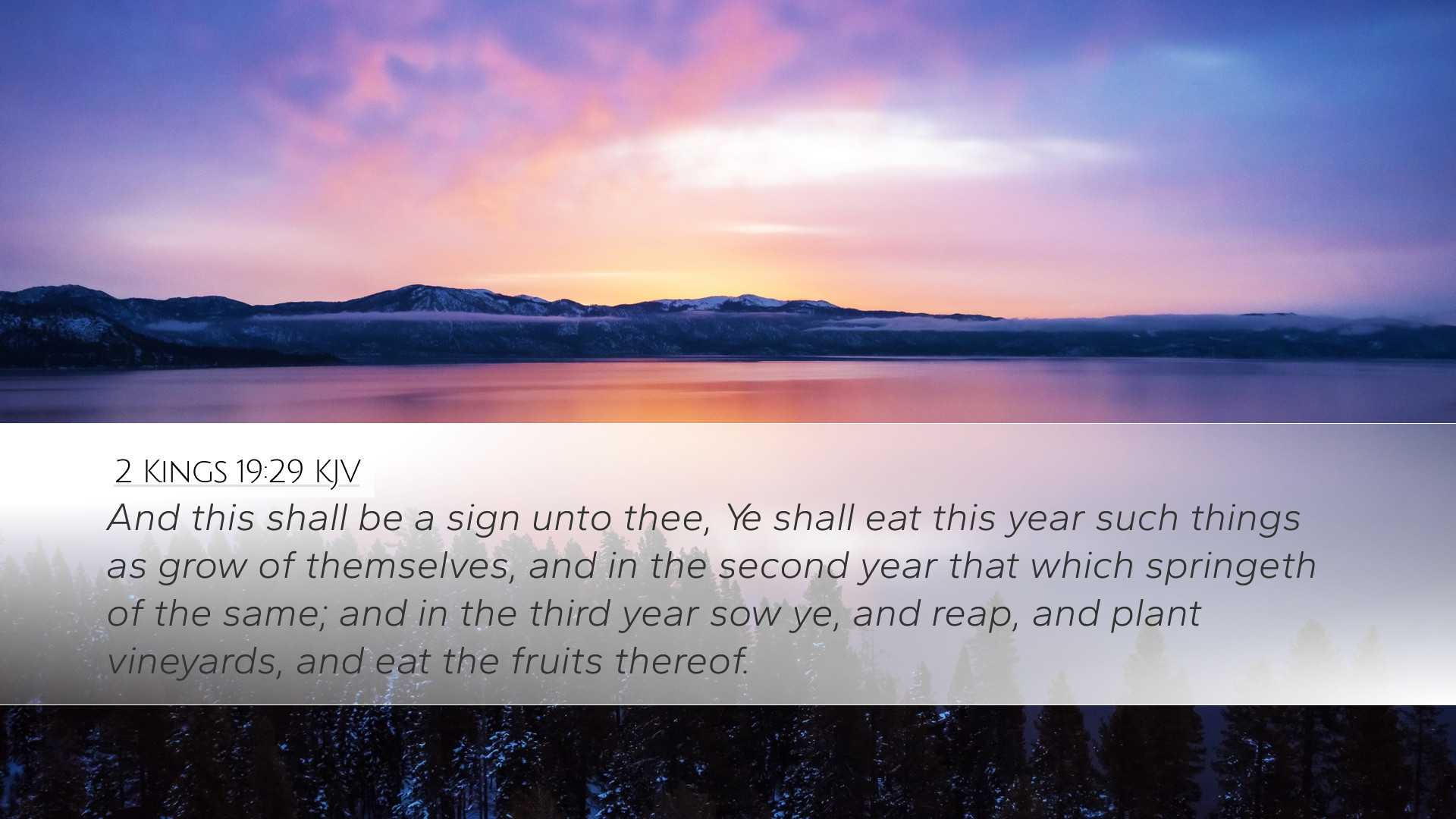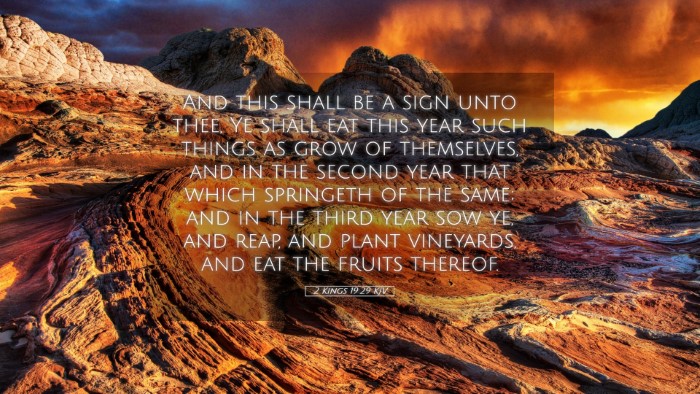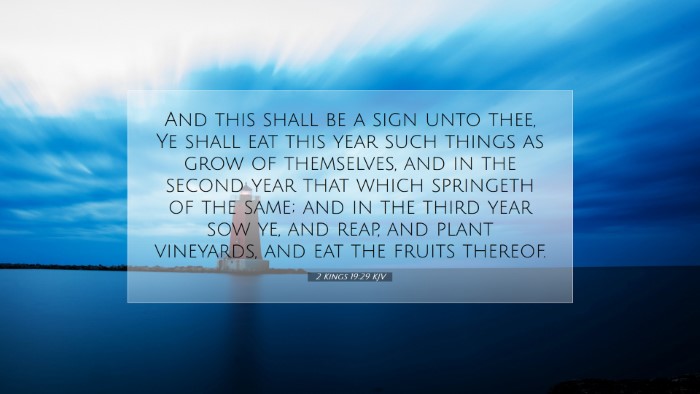Commentary on 2 Kings 19:29
Verse: "And this shall be a sign unto thee, Ye shall eat this year such things as grow of themselves; and in the second year that which springeth of the same: and in the third year sow ye, and reap, and plant vineyards, and eat the fruits thereof."
Contextual Understanding
2 Kings 19 details the critical moment when King Hezekiah faces the Assyrian threat. In this chapter, we see the interplay between human fear and divine assurance. The verse in focus reflects God’s promise of sustenance amidst siege and uncertainty.
Theological Insights
In examining this passage, several key themes emerge, addressing the faithfulness of God, the nature of provision, and the call to perseverance.
-
God's Faithfulness:
Matthew Henry emphasizes that this promise serves as a reminder of God’s unwavering support for His people. Even during a time of distress, God provides assurance and hope, affirming His covenant relationship with Israel.
-
Divine Provision:
Albert Barnes remarks that God often provides for His people in unexpected ways. The promise of eating what grows of itself signifies God’s miraculous provisions when human efforts seem futile. This reinforces the belief that reliance on God yields abundance even in barren times.
-
Call to Action:
Adam Clarke suggests that this passage also includes a call to future action. After a period of passive provision, the people are encouraged to sow and reap, symbolizing a shift from dependency to active participation in God’s blessings.
Historical Context
This promise is situated within the historical backdrop of Assyrian expansionism. Hezekiah's reign is marked by fear and the need for divine intervention. Against this backdrop, God speaks comfort and future expectation, which is significant in a time of national crisis.
Spiritual Applications
There are several contemporary lessons that pastoral leaders and theologians can draw from this passage:
-
Trusting in Divine Timing:
The progression from sustenance without effort to the responsibility of planting and harvesting symbolizes spiritual growth. Believers are reminded that in times of waiting, God is preparing them for future labor.
-
Encouragement in Trials:
This verse serves as a pastoral assurance that despite adversities, God’s provision is faithful. It encourages congregations to trust in God’s sovereignty during challenging circumstances.
-
Participation in God’s Work:
The call to plant and reap is a metaphor for the Christian life, encouraging active participation in God’s redemptive work in a lost world. It invites believers to move beyond mere sustenance to contributing to God’s kingdom.
Conclusion
2 Kings 19:29 offers a profound message of hope, provision, and active faith. By analyzing this verse through the lenses provided by Matthew Henry, Albert Barnes, and Adam Clarke, a rich tapestry of understanding emerges that underscores God's faithfulness and invites believers to engage actively in the work of His kingdom.


